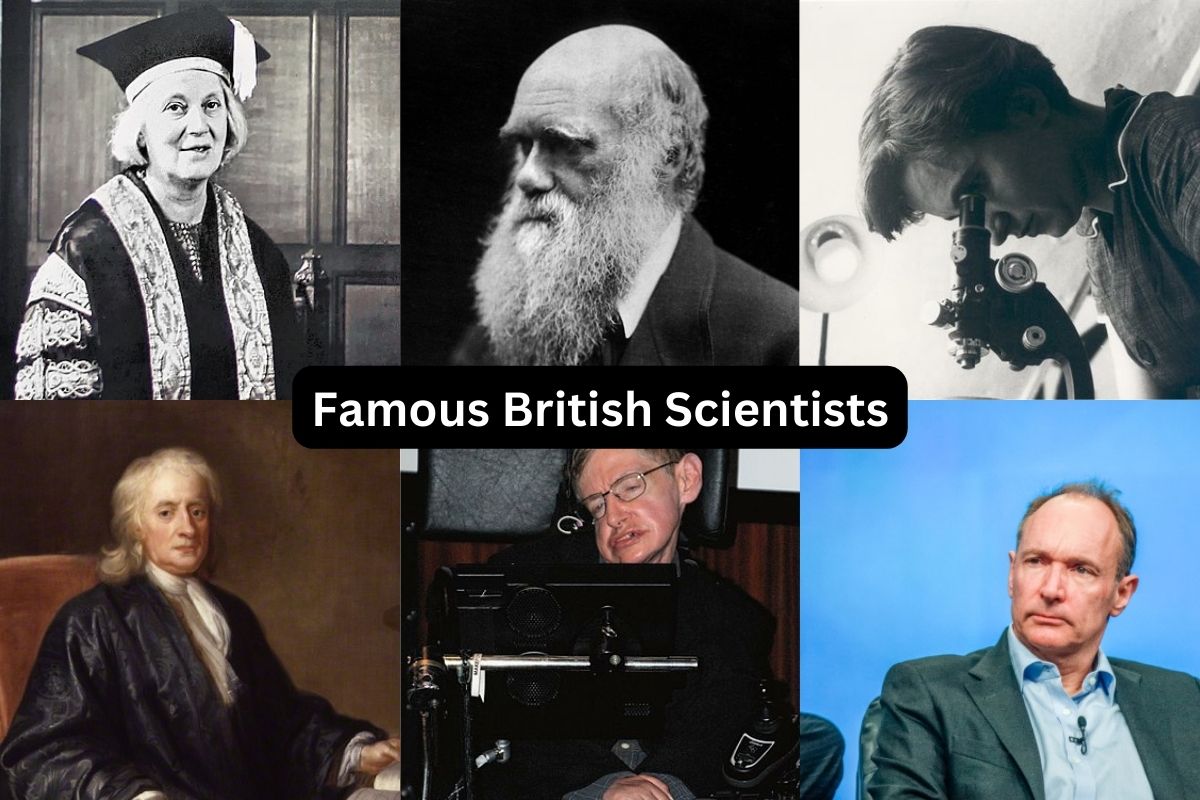The United Kingdom has a rich and illustrious history of scientific innovation, with its scientists making remarkable contributions to various fields over the centuries.
From groundbreaking discoveries in physics and biology to pioneering work in computer science and chemistry, British scientists have left an indelible mark on the world of science.
In this article, we’ll take a journey through time and explore the lives and achievements of some of the most famous British scientists, whose work has not only advanced human knowledge but also shaped the course of history and inspired generations of researchers.
Famous British Scientists
1. Stephen Hawking (1942-2018)

Stephen Hawking was a renowned theoretical physicist, cosmologist, and author.
He made groundbreaking contributions to our understanding of black holes, particularly with his discovery of Hawking radiation, which suggested that black holes could emit radiation and eventually evaporate.
Despite being diagnosed with amyotrophic lateral sclerosis (ALS) at a young age, Hawking continued to work and communicate through a speech-generating device.
Also Read: Famous French Scientists
His popular science book “A Brief History of Time” became a bestseller and brought complex scientific concepts to a broader audience.
Hawking’s work on the nature of the universe, the Big Bang theory, and the study of black holes had a profound impact on the field of theoretical physics.
2. Charles Darwin (1809-1882)
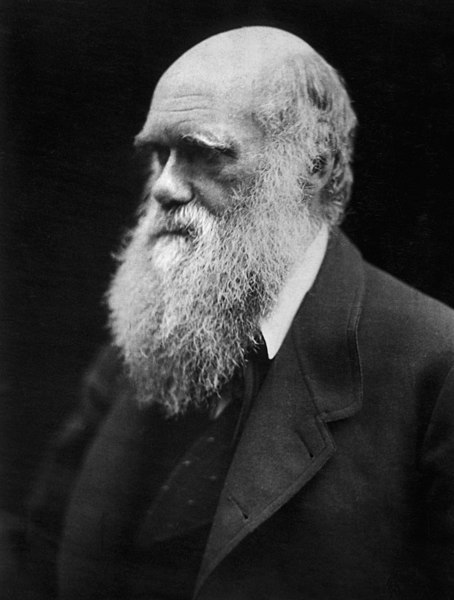
Charles Darwin was a naturalist, biologist, and geologist who is best known for his theory of evolution by natural selection.
His seminal work, “On the Origin of Species,” published in 1859, presented the idea that species evolve over time through the process of natural selection, driven by variation and adaptation to environmental conditions.
Also Read: Most Famous Scientists
Darwin’s theory revolutionized our understanding of biology and the diversity of life on Earth.
He also made important contributions to the study of geology and the formation of coral reefs during his scientific career.
3. Dorothy Hodgkin (1910-1994)
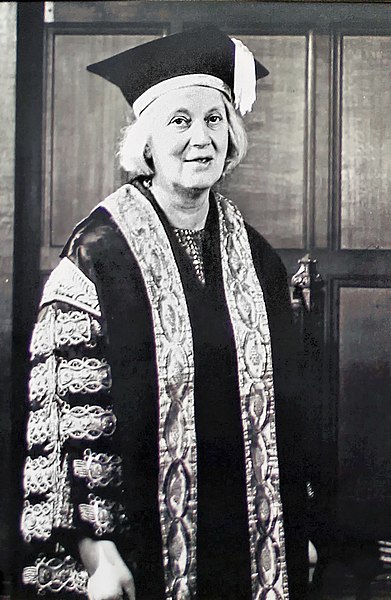
Dorothy Crowfoot Hodgkin was a chemist and X-ray crystallographer who made significant contributions to the field of molecular biology.
She is best known for her work on the X-ray crystallography of important biomolecules, including the structure of penicillin, vitamin B12, and insulin.
Hodgkin’s determination of the three-dimensional structures of these molecules helped advance our understanding of their functions and led to important developments in medicine and biochemistry.
Also Read: Most Famous Asian Scientists
She received the Nobel Prize in Chemistry in 1964 for her groundbreaking work in determining the structure of complex biochemical substances.
Hodgkin was a pioneering woman in science and a role model for future generations of female scientists.
4. Rosalind Franklin (1920-1958)
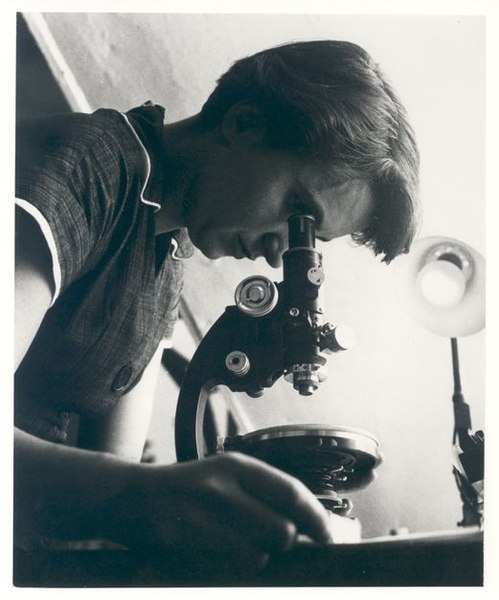
Rosalind Franklin was a chemist and X-ray crystallographer who made significant contributions to our understanding of the molecular structure of DNA and RNA.
Her work on DNA’s structure was instrumental in the discovery of the DNA double helix, although she did not receive as much recognition during her lifetime as some of her contemporaries.
Franklin’s research on the crystalline structures of fibers, including DNA and RNA, provided crucial data that were used by James Watson and Francis Crick in their model of the DNA molecule.
In addition to her work on DNA, Franklin made important contributions to the understanding of the structure of viruses and coal.
Her legacy as a pioneering scientist in the field of molecular biology has been increasingly recognized in recent years.
5. Isaac Newton (1643-1727)
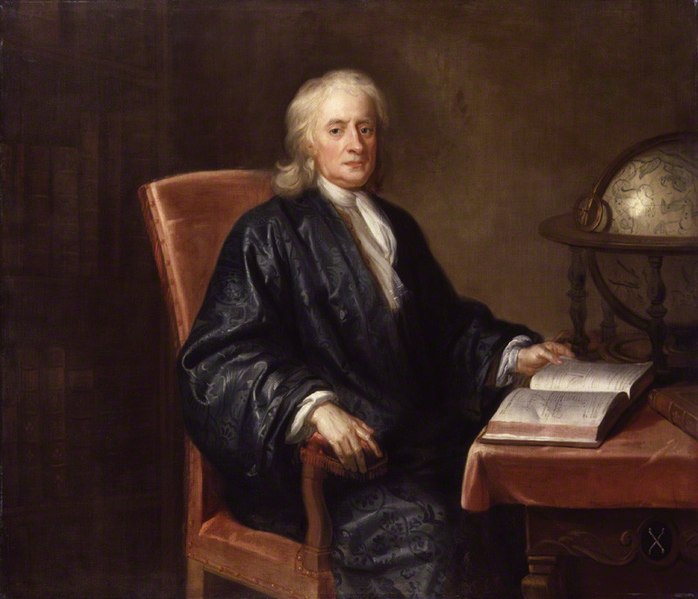
Isaac Newton was one of the most influential scientists in history, known for his profound contributions to physics, mathematics, and astronomy.
He formulated the laws of motion, including Newton’s three laws of motion, which laid the foundation for classical mechanics.
Newton also discovered the law of universal gravitation, explaining how objects are attracted to each other by the force of gravity.
His work on calculus and the development of the binomial theorem significantly advanced mathematics.
Newton’s book “Philosophiæ Naturalis Principia Mathematica” (Mathematical Principles of Natural Philosophy) is considered one of the most important scientific works ever published.
6. Tim Berners-Lee (born 1955)

Tim Berners-Lee is a computer scientist who is best known for inventing the World Wide Web (WWW) in 1989.
He developed the first web browser and web server, as well as the HTTP (Hypertext Transfer Protocol) that allows information to be shared on the internet.
Berners-Lee’s invention revolutionized the way information is accessed and shared globally, making the internet accessible to people worldwide.
He also played a key role in establishing the World Wide Web Consortium (W3C) to standardize web technologies and ensure its continued growth and accessibility.
Berners-Lee’s contributions to the development of the World Wide Web have had a profound impact on technology, communication, and society.
7. Alan Turing (1912-1954)
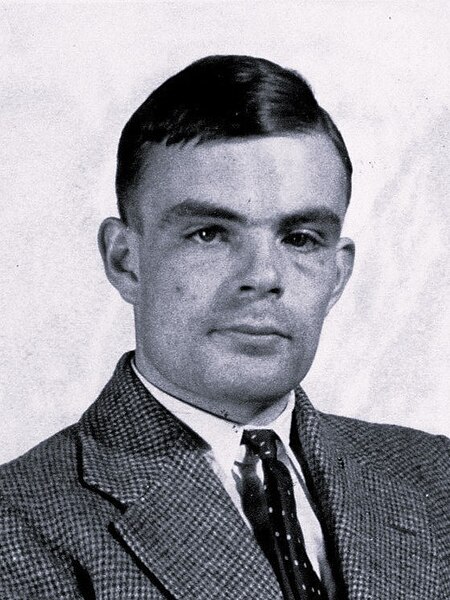
Alan Turing was a British mathematician, logician, and computer scientist who made profound and multifaceted contributions to various fields, including computer science, cryptography, and artificial intelligence.
During World War II, Turing played a critical role in breaking the German Enigma code, a feat that significantly aided the Allied war effort. His work at Bletchley Park, along with his invention of the Bombe machine, was instrumental in deciphering encrypted German communications.
Turing’s most famous achievement is the Turing machine, a theoretical mathematical concept that laid the groundwork for modern computer science. It is considered a fundamental model for understanding the limits of computation and algorithmic processes.
He also developed the Turing test, a test of a machine’s ability to exhibit human-like intelligence, which remains a foundational concept in the field of artificial intelligence.
Sadly, Turing’s life was marred by persecution and discrimination due to his homosexuality, which was criminalized in the United Kingdom at the time. He was convicted of “gross indecency” in 1952 and underwent chemical castration as a result.
Tragically, Alan Turing died by suicide in 1954 at the age of 41. His death was a profound loss to the world of science and mathematics.
In recent years, there has been a concerted effort to acknowledge and rectify the injustice Turing faced during his lifetime. In 2013, Queen Elizabeth II granted him a posthumous pardon, and his contributions to science and computing have received widespread recognition and acclaim.
8. Ada Lovelace (1815-1852)
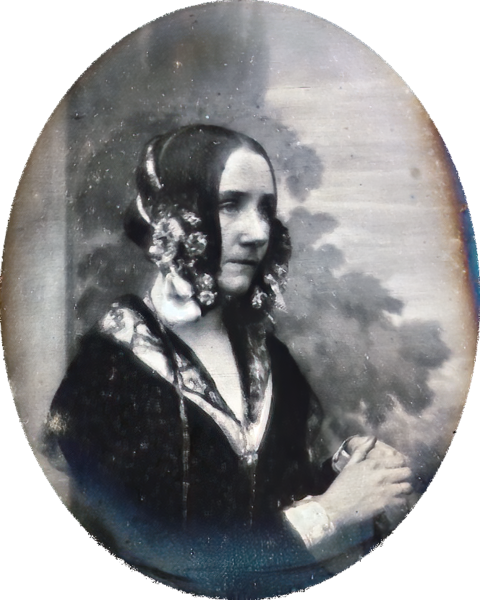
Ada Lovelace, born Ada Byron, was an English mathematician and writer known for her pioneering work in computer science.
She is often considered the world’s first computer programmer, as she wrote the first algorithm intended to be processed by a machine. Her notes on Charles Babbage’s Analytical Engine include what is now recognized as the first computer program.
Lovelace’s insights into the potential of machines to go beyond number-crunching laid the groundwork for modern computer programming.
Her contributions to the field of computing were largely unrecognized during her lifetime but have gained significant recognition in recent years.
9. Francis Crick (1916-2004)

Francis Crick was a British molecular biologist and co-discoverer of the DNA double helix structure along with James Watson.
Their groundbreaking discovery, made in 1953, explained how genetic information is stored and transmitted in living organisms.
Crick’s work in molecular biology extended beyond DNA, and he made significant contributions to our understanding of the genetic code and the central dogma of molecular biology.
He received the Nobel Prize in Physiology or Medicine in 1962 for his pivotal role in deciphering the structure of DNA.
10. Michael Faraday (1791-1867)
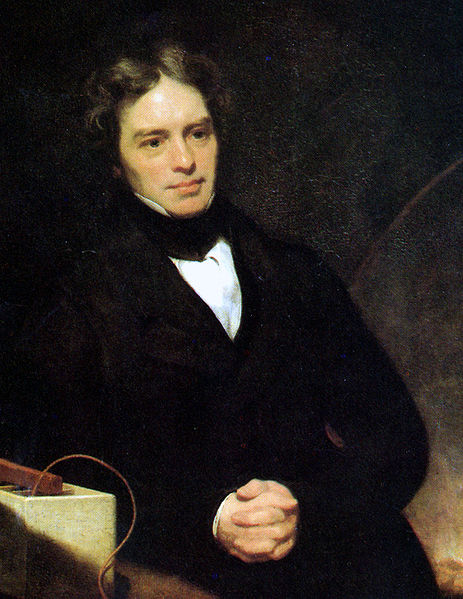
Michael Faraday was a British scientist who made key contributions to the fields of electromagnetism and electrochemistry.
He discovered electromagnetic induction, demonstrating how a changing magnetic field can induce an electric current in a conductor, laying the foundation for the development of electric generators and transformers.
Faraday also discovered benzene’s structure, made advancements in understanding electrolysis, and introduced the concept of electric and magnetic field lines.
His experimental work and insights had a profound and lasting impact on the fields of physics and chemistry.
